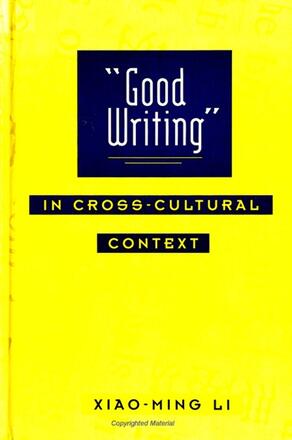
Good Writing in Cross-Cultural Context
Alternative formats available from:
This dialogue between teachers of writing in China and America on what constitutes "good writing," reveals that standards are culturally situated.
Description
Writing comments on student papers is a time-honored and widely accepted practice in writing classrooms in most countries. Teachers offer text-specific advice to each student and communicate to the student writer, among other things, the criteria of good writing. A close look at the teacher's comments, therefore, reveals the criteria with which teachers measure student papers.
This study builds a dialogue between teachers of writing in China and America on what "good writing" is, revealing the fact that "good writing" resides not just with student texts, but with the teachers who read and judge student papers.
Xiao-ming Li is Assistant Professor of English at Long Island University.
Reviews
"As the first ethnographical account of teachers' perceptions about good writing in China and America, this book gives the reader a whole new insight about differences and similarities in educational systems, teacher training, and teaching between two nations. The systems and teachers described in the book come alive. " — Ulla Connor, Indiana University in Indianapolis
"Xiao-ming Li's book of what teachers say about student writing is a meticulous analysis of the operating criteria of expert teachers, those who mold the structure and the style of a whole generation of students. By exploring both the common ground within a culture and the differences between the Chinese and United States cultures, Li shows how standards are formed and the forms those standards take.
"In a postmodern world these differences are seen; but within each of the cultures, there is a strong modernist and universalist approach to writing. The two sets of teachers exhibit this tendency. Hence their authority. They are indeed authoring the way another generation of students will write. Some of those students may rebel, but probably few will.
"Although the teachers may call for individuality of expression, pressure is strong for such individuality to be confined. Such has long been the case and so it will probably remain, but Xiao-ming Li has masterfully turned the mirror on us and forced us to confront our selves. " — from the Foreword by Alan C. Purves